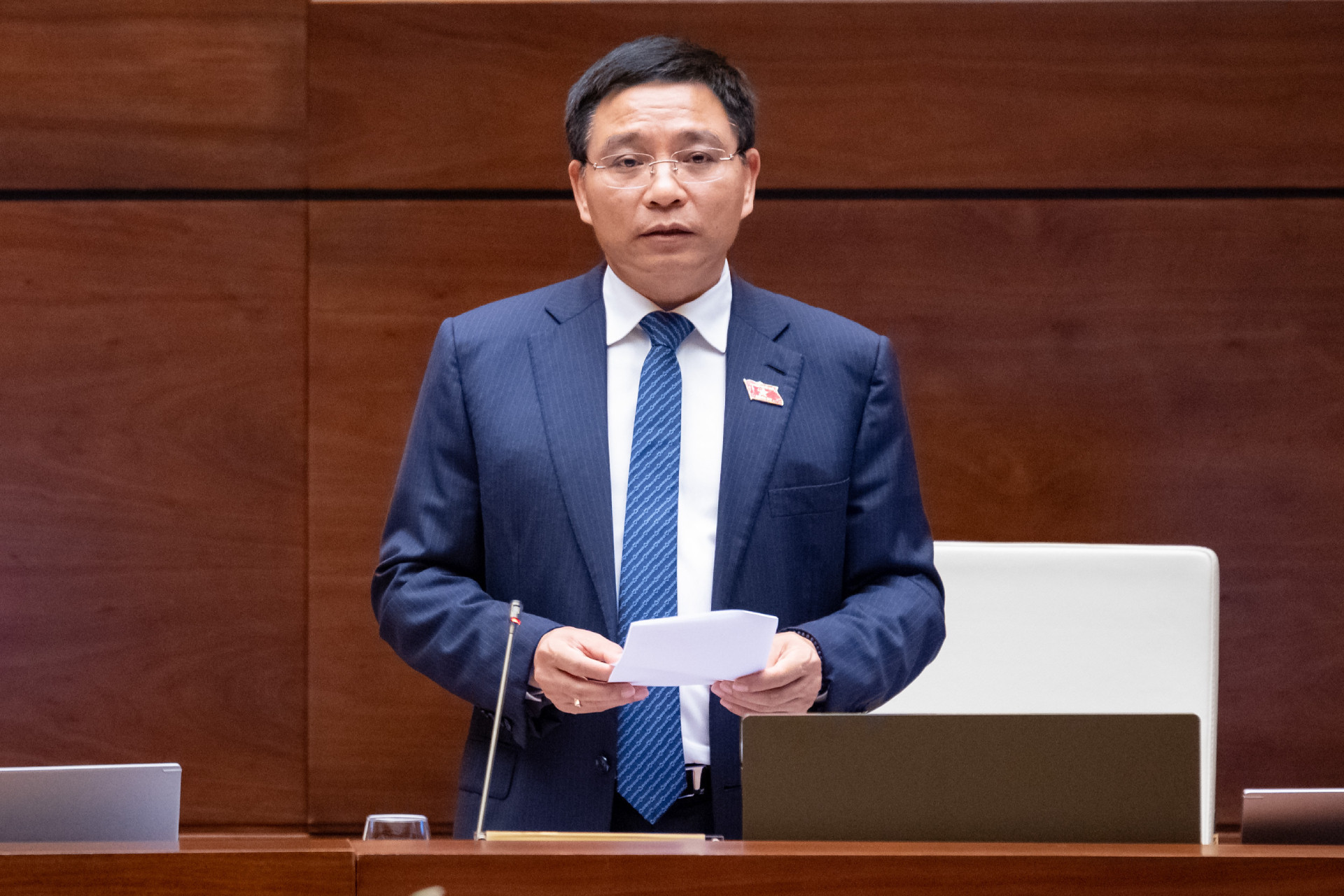Finance Minister Nguyen Van Thang has emphasized the need for a favorable legal framework that encourages entrepreneurs to take part in advisory roles, government management, or run for elected bodies such as the National Assembly or People's Councils at various levels.

At the end of this morning’s National Assembly session, delegate Ha Sy Dong (Quang Tri) raised a question concerning the ministry’s report. He expressed particular interest in solutions and tasks focused on prioritizing and facilitating entrepreneurs’ engagement in national governance.
He asked Minister Thang to elaborate on the practical foundations and specific measures that would enable entrepreneurs to meaningfully participate in national governance.
Responding in the afternoon session, Minister Nguyen Van Thang stressed that in the era of reform and international integration, Vietnam’s business community has asserted its role across various sectors, making significant contributions to national development. Entrepreneurs not only lead business growth but also play a vital role in economic strategy, investment attraction, and social welfare.
According to the Minister, in recent years many outstanding entrepreneurs have been trusted and nominated to serve in key positions within political organizations and elected bodies.
“The government and ministries have maximized the intellectual resources of entrepreneurs, involving them in major projects and issues of national concern,” Thang noted.
However, he acknowledged that entrepreneurs’ involvement in the political system and elected bodies remains limited. Politburo Resolution 68 affirms the need to honor and recognize outstanding entrepreneurs, and to mobilize those with talent and integrity to participate in national governance.
To address this, Thang proposed several key measures. First, establish a legal framework that encourages entrepreneurs to serve as advisors, government managers, or run for elected positions. Second, expand opportunities for dialogue between the state and the business sector, and actively involve entrepreneurs in policy feedback, development, and implementation.
“Although such dialogues have taken place, they need to be more widespread and in-depth,” he added.
Thang also emphasized that entrepreneurs must uphold business ethics, social responsibility, and the rule of law. They should continuously improve their qualifications and credibility to join representative organizations and meet the criteria for nomination or election to political roles.
A “profound and difficult” question
Delegate Tran Hoang Ngan (Ho Chi Minh City) addressed the integration of the Ministry of Finance and the Ministry of Planning and Investment, pointing out that the two ministries previously had differing priorities. While Planning and Investment focused on growth and stimulus via tax cuts, Finance prioritized public debt control, tax enforcement, and budget discipline.
He asked, “After the merger, how will the Finance Minister ensure that the country maintains high growth while preserving macroeconomic stability?”
In response, Minister Thang acknowledged the question as “very profound and very difficult.”
He explained that the merger was based on practical needs, and both the former ministries and the unified Ministry of Finance share the overarching goal of ensuring fast, sustainable development and macroeconomic stability.
“Even when the ministries were separate, we coordinated effectively to maintain fiscal discipline and safeguard national financial security. Stability is essential for growth,” he said.
He added that the merger was a sound decision by the Party and State, aimed at streamlining the system, enhancing efficiency, and reducing bureaucratic layers.
“Previously, balancing investment and fiscal safety involved coordination between two agencies. Now, we address it within a unified framework. This brings synergy and increased efficiency,” he emphasized.
Thang stated that the unified ministry now has a more holistic and coherent vision. It can now simultaneously oversee socioeconomic strategy, budget management, and resource allocation, allowing faster and more accurate decision-making.
The Ministry of Finance is now better positioned to optimize the use of national resources - not just focusing on how much is spent, but where funds are allocated for maximum impact, ensuring public investment is targeted and effective.
He also noted that the merger enhances the ministry’s ability to mobilize development resources.
Tran Thuong - The Vinh